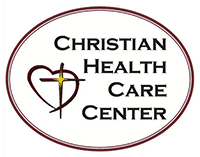When the end of a loved one’s life approaches, you don’t want to be focusing on paperwork, bills and other mundane tasks.
However, there is much that needs to be done — POLST forms, wills, funeral planning, etc.
Thankfully, much of these tasks can be completed well in advance, so when the time comes, you can focus on what’s important: being with your loved one and other family and friends.
Here are some things you can do to conduct end-of-life or advance care planning early:
- Fill out your advance directives. PeaceHealth is offering a number of advance care planning courses that are free for anyone to take. Nearby in-person classes are scheduled for Bellingham, Sedro-Woolley and Friday Harbor, and online classes also are available. In the classes, participants will learn about the process of choosing a health care agent and putting wishes in writing — on POSLT forms, for example — related to health care in the event that they are unable to speak for themselves. Taking care of these decisions early is an important part of self-determination for your loved one.
- Locate a reputable funeral home to handle needed tasks. A funeral home can help with the required planning, including deciding between cremation and burial (and, if the latter, choosing a casket and a place for your loved one to be buried). Also, it’s nice to know that the funeral home will ensure that the death certificate is signed by a medical examiner and can order copies for you to use in closing out your loved one’s accounts.
- Create a will and have it witnessed and notarized. A will can be filled out at any time, even years or decades in advance, so there’s no reason to wait until the last minute.
- Talk with your loved one about plans for a funeral or memorial service. Many people consider this a morbid topic, but it can be refreshing and cathartic to plan ahead. Take time to review old photos with your loved one and get the stories behind each. Talk about favorite songs, memories, Bible verses, etc. — anything that can be incorporated into the memorial service and that can help others get a better understanding of your loved one.
- Conduct research on end-of-life care. The Palliative Care Institute at Western Washington University and other local organizations are working hard to transform end-of-life care in Whatcom County. In addition, many hospice organizations, such as PeaceHealth Whatcom Hospice, work to provide a “comfortable and dignified transition” for those with terminal illnesses. Reach out to one of these organizations or talk with your loved one’s doctor to get a better sense of whom to call when the time is right — and how to identify when that time comes.
Talk with your loved one’s caregivers. Long-term care providers like Christian Health Care Center in Lynden have a team in place to help people make end-of-life choices. If a friend or family member needs skilled nursing as part of their end-of-life care, seek the advice of their experienced staff.
